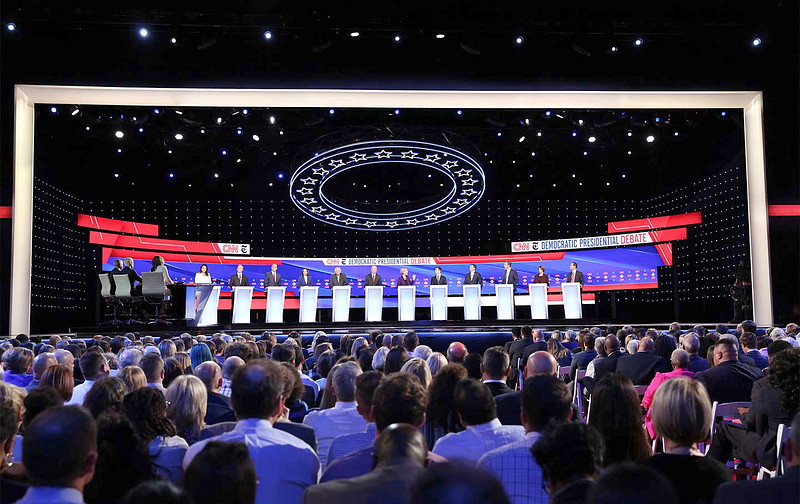
Debates are good for two things: soundbites and headlines. Soundbites will get lost in a matter of days amidst Tik Toks and ten-hour long videos of bear noises; headlines are promptly replaced as the 24-hour news cycle chugs along like a train with busted brakes.
Debates are lacking in many ways, including, but not limited to: presenting accessible and useful information for voters, demonstrating a candidate’s genuine extemporaneous thinking skills, creating actual dialogue around an issue, and generally promoting rational exchanges.
It would, in today’s debate structure, be illogical and infeasible for a candidate to say, “You’re right, maybe I’ll change my point of view” after another candidate is done speaking. In the present climate, candidates are presented as though they have every aspect of their policies and campaigns fully thought through. This structural limitation on both vulnerability and adaptability further enforces their blind adherence to their positions even when presented with credible counterarguments.
Further, not only are candidates unwavering in their views, but they also feel compelled to shout over one another like your slightly-too-drunk relatives over the Thanksgiving table. This renders the points made by either candidate lost in a cacophony of policy babble. The viewer becomes disoriented and irritated — as I was during the last Democratic debate — which can prompt them to turn off the TV and to wait for the podcasts and articles to recap.
By this same token of incomprehension, this egregious spew does not even provide accurate or detailed enough information for a voter to understand what is being discussed.
Moreover, moderators do not facilitate the debate. In fact, because each cable network or OTA broadcaster hosting the debate provides their own moderators/on-air personalities, they inject themselves into places that they do not belong (like Rudy Giuliani in the Ukraine.) They either complicate the questions or do not ask the right ones in the first place! It seems that moderators are there for dramatic effect, not to actually moderate.
What’s more: statistically, debates don’t even matter! In studies on continuity in votes pre- and post-debates, political scientists demonstrated that, overwhelmingly, voters do not change their votes after a debate, according to The Washington Post. Their findings showed that, at best, the effect was weak and at worst, nonexistent. In that inconsequentiality, a candidate’s performance seems to matter even less for it is the media’s subsequent spin that veritably affect voters’ opinions. This presents another considerable reason to change conventional debate format.
There are simple ways in which we can remedy these dilemmas. First, instead of a debate, political position discussions could be restructured to emphasize substance instead of highlighting the most severe response or fiery comeback, like a playground afterschool or an Instagram comment section. Instead, candidates could straightforwardly inform viewers on their positions, policies, and solutions for existing problems.
Additionally, with all the streaming services currently available, we should move away from showing debates on a big cable or OTA network that provides its own intrusive moderators. Instead, the DNC itself should stream and broadcast its debates.
Debates do not represent democracies, but they do not have to be this way. All I ask is to finally be able to hear and understand the candidates’ policies and ideas so that we as Americans can make informed decisions.

















